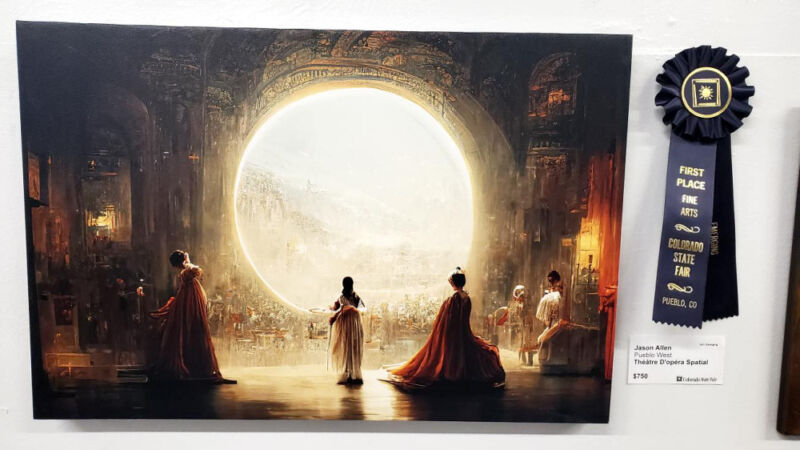Community, Leadership, Experimentation, Diversity, & Education
Pittsburgh Arts, Regional Theatre, New Work, Producing, Copyright, Labor Unions,
New Products, Coping Skills, J-O-Bs...
Theatre industry news, University & School of Drama Announcements, plus occasional course support for
Carnegie Mellon School of Drama Faculty, Staff, Students, and Alumni.
CMU School of Drama
Tuesday, September 12, 2023
US rejects AI copyright for famous state fair-winning Midjourney art
Ars Technica: On Tuesday, the US Copyright Office Review Board rejected copyright protection for an AI-generated artwork that won a Colorado State Fair art contest last year because it lacks human authorship required for registration, Reuters reports. The win, which was widely covered in the press at the time, ignited controversy over the ethics of AI-generated artwork.
Subscribe to:
Post Comments (Atom)

2 comments:
I think this article gives us a lot to think about how artificial intelligence and art will work together in the future. I mean we can’t escape it or ban it, you already see videos of AI generated art, or prompts popping up all over instagram and tik-tok. It will only get more integrated into our lives and I think this article explores and excellent question about AI art and copyright. I think its an excellent question because we have to ask ourselves again to redefine what we think art is. Is art something only humans can make? Or is AI human made because humans programmed AI? How can we claim the words we put into artificial intelligence and the things it produces for us? I am 100% sure that my knowledge about artificial intelligence and how it works is almost near to nothing and so talking about this and exploring this is a bit of a stretch for me, but I think I agree with the ruling, how can you copyright something or an idea you did actually make or come up with yourself? I mean can you claim the essay chat GBT wrote for you after you made like a four word request, no.
At first, I thought this was a win for artists trying to preserve their craft against increased use of AI. But after reading it more in depth, I have conflicting feelings about the decision made by the US Copyright Office Review Board. While I agree that AI generated work should be attributed to AI, the purpose of artist Jason M. Allen applying for copyright protection is for the entirety of the piece. WHen you think about it, if the Copyright Office only protects the portions of the piece Allen directly manipulated with photoshop, any one with access to AI software can produce an image that's practically identical. It is frustrating knowing how much work Allen put into this piece: it was not just some randomly produced AI work that someone got off the internet in five minutes. It also seems backwards this is the stance the Copyright Office takes on AI produced work, but the work of thousands of artists have been used to train AI systems.
Post a Comment